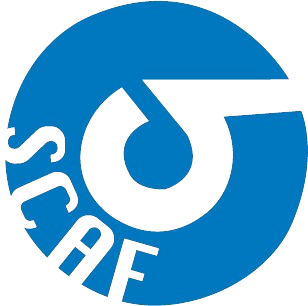Hello everyone
With quarter finals being played tomorrow, followed by semi’s and finals next week, I thought I would pass this article along to you. It is from Ed Reed the CWPA (East Coast) assigner. Just some food for thought as we get ready for the last week of the season.
Have a great day and we’ll see you on the deck soon.
Andrew Gates, President
SCAF-WP Officials Board of Directors
From Ed:
I was reading an article in REFEREE and found it to be so applicable to our sport of water polo that I thought it would be important to share some of the contents with you. The title was “Don’t Ignore Your Emotions-Control Them.” Whether you are a beginner or experienced referee emotions will always come into play during the game you are officiating. Early season officiating, especially in invitational or non-conference play usually is a lot less stressful than conference and championship games where something important is on the line.
Emotional control is easier said than done especially as a referee when you are put in front of psyched-up, keyed-up intense athletes, a couple of intense coaches and in some cases a bunch of screaming fans. “Controlling your emotions means controlling your game, controlling your game is your job!” To be effective you need to be rock solid but not a robot. A good listener, but not a passive abuse taker. A true professional, but not an egomaniac.
Confidence is one of your best emotions, but it can’t grow into overconfident and lend itself to becoming arrogant (egomania). Confidence in your ability allows you to handle pressure effectively. You can develop a level of confidence where you have a good feel for the game and what is happening around you, in the water, on the pool deck and in the stands. Confidence gives you the ability to defuse problems before they happen. Confidence and knowledge of the rules is power and can give you a good sense of control and a feeling you are mastering your game.
As pressure mounts you need to maintain control of your cool. All the knowledge in the world can only take you so far. The outcomes of some games can have huge implications, the pressure is there and can’t be denied. You need to develop personal stress management skills like self-talk that will maintain your focus on what is in front and around you.
Developing stress management skills can keep you focused when the game pressure increases. You can’t try to pretend you have no emotions and nothing can get to you. Try developing a quick conversation with yourself acknowledging the pressure but keeping yourself focused on the game. Assure yourself you have control of the game in a relaxed, calm way. “Fairly assess your performance and commit to minimizing mistakes, but also be prepared to move on and develop a tolerance for being less than perfect.” Don’t let your internal conversation control you. “Damn, I blew that one!” Approach your thinking in a calmer way by increasing your intense focus on the game anticipating what will happen next on offense and how the defense can react.
Remember, you’re not going to be the most popular person in the building. You are usually the scape goat for the frustration of coaches, players, and fans. There may be individuals that become real challenges with words that are questioning, unkind, and become very personal. You need to anticipate what might come and ask yourself how you are going deal with it. You need to have patience and a strong cerebral manner. If you are looking for the need of approval or a nice slap on the back for a job well done, think again, it rarely happens. Except may be from an evaluator, partner or a rare appreciative winning coach. Whether it is a personal attack, unfair criticism or just plain harassment, the key to keeping cool and performing well is maintaining focus on the game.
When you blow a call, remember, every official has had one occasionally. Sometimes admitting a mistake to a coach earns their respect. However, doing that too often destroys your credibility. The trick is to learn from your mistakes, that’s what makes you a better referee and helps you to minimize mistakes in the future.
Instead of demanding perfection, your focus should be on being the best you can be and searching for ways to improve anticipation, communicating skills and better positioning. Video feedback is one of the best ways to improve your performance. It helps you understand what really happened and gives you a basis for anticipating similar situations in the future.
Have a great season!
